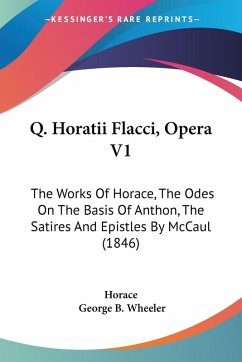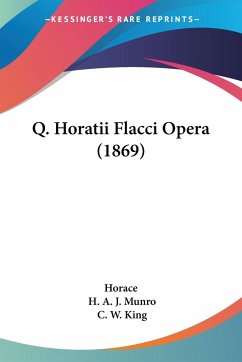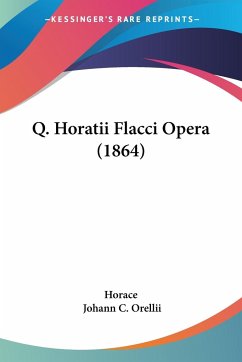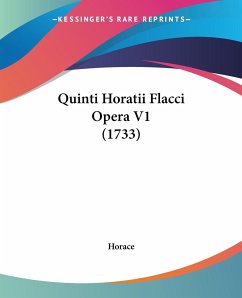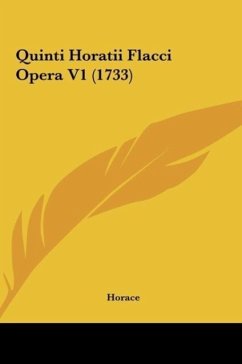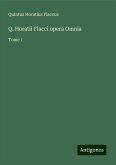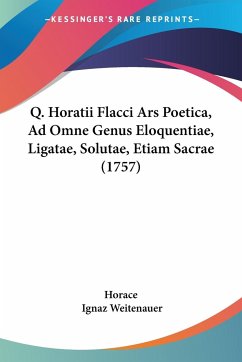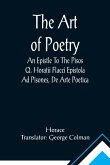Q. Horatii Flacci, Opera V1: The Works Of Horace, The Odes On The Basis Of Anthon, The Satires And Epistles By McCaul (1846) is a book that contains the complete works of the ancient Roman poet Horace. The book is divided into two parts: the first part consists of Horace's Odes, which have been edited and translated by Charles Anthon, an American classical scholar. The second part of the book contains Horace's Satires and Epistles, which have been edited and translated by John Collinson McCaul, an English scholar and educator.Horace's Odes are a collection of lyric poems that were written in the 1st century BC. They are known for their beauty, elegance, and simplicity, and they cover a wide range of themes, including love, friendship, nature, and the joys of life. Anthon's edition of the Odes is based on the most reliable manuscripts of Horace's works, and his translation is faithful to the original Latin text.Horace's Satires and Epistles, on the other hand, are more satirical and philosophical in nature. They are written in a more conversational style, and they often deal with contemporary issues and political events. McCaul's edition of the Satires and Epistles is also based on the most reliable manuscripts of Horace's works, and his translation is clear and accessible to modern readers.Overall, Q. Horatii Flacci, Opera V1: The Works Of Horace, The Odes On The Basis Of Anthon, The Satires And Epistles By McCaul (1846) is an excellent resource for anyone interested in the works of Horace. It provides a comprehensive and reliable edition of his complete works, along with clear and accessible translations that make these ancient texts accessible to modern readers.With Copious Notes, Partly Original And Partly Selected From Bentley, Dunning, Mitscherlich, Jahn, Heinrich, Dillenberger, And Orelius.This scarce antiquarian book is a facsimile reprint of the old original and may contain some imperfections such as library marks and notations. Because we believe this work is culturally important, we have made it available as part of our commitment for protecting, preserving, and promoting the world's literature in affordable, high quality, modern editions, that are true to their original work.
Hinweis: Dieser Artikel kann nur an eine deutsche Lieferadresse ausgeliefert werden.
Hinweis: Dieser Artikel kann nur an eine deutsche Lieferadresse ausgeliefert werden.

